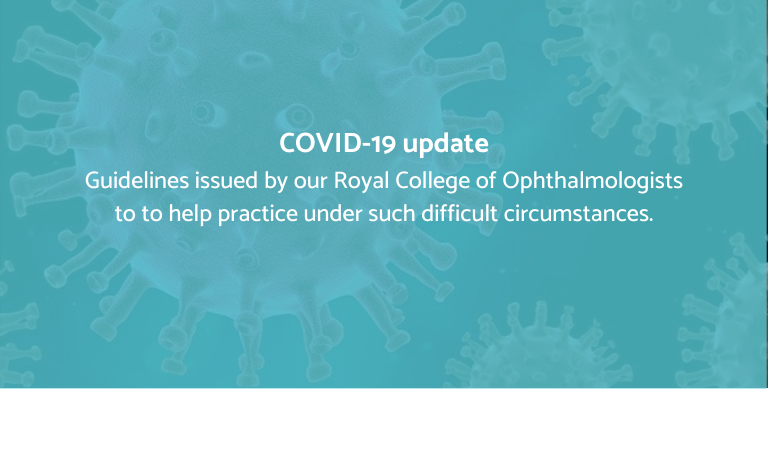Coronavirus Update
The outbreak of this pandemic has sadly led to restrictions being placed across wide facets of everyday life. The Royal College of Ophthalmologists have acted to give guidance to help clinical practice under such difficult circumstances.
Balancing risk
The aim of clinicians currently is to balance the risk of possibly acquiring COVID-19 infection in the eye clinic versus the risk of harm as a result of failure to treat a serious eye problem. The College is therefore advising all NHS Clinics, private practice and independent treatment centres to postpone all routine ophthalmic surgery. All face to face outpatient appointments have been ceased, with caveats existing related to urgent risk of sight loss and harm.
The role of managers and administrators
Managers and administrators are working extremely hard to ensure the guidelines are followed wherever possible. All routine procedures will be cancelled and rebooked, deflecting any non-serious unplanned attendances and ensuring that staff are able to identify and isolate high-risk patients. The current challenge throughout the world is to ensure that there’s an adequate supply of PPE: it is imperative that this target is met as the long term consequences are grave. Managers are also ensuring that latest government information regarding COVID-19 is disseminated among staff.
The role of ophthalmology consultants
Protocols have been drawn out to:
- Identify those patients to defer and by what time-frame
- Those to discuss over the phone
- Those to give empirical treatment to
We are working with non-medical and admin staff to continually communicate with patients as to whether they still need to attend hospital with preserved safety versus remote monitoring.
Staff and patient protection
As ophthalmologists and other clinical professionals are in prolonged close contact with patients, a scrupulous standard of infection control is being developed. This includes risk stratification, isolated area for treating confirmed COVID-19 patients, regular cleaning and prioritising getting PPE.
Reducing risk for patients for who must attend
When a patient has to attend, the amount of contact time will be reduced to a minimum. For example history taking can be performed over the phone in a different room. A distance of two metres will be kept from the patient, until clinical examination requires otherwise. The examination will be kept brief and concise, minimising any procedures that are not entirely necessary. Exacting hygiene standards will be followed throughout. Every effort will be made to defer immunosuppressed, vulnerable and high-risk patients making use of video facilities where possible.
Emergency services
As the crisis develops it’s likely that ophthalmology services will be reduced as resources are directed to front line care of COVID 19 patients. Eye services will not cease completely, and priority will be given to anyone whose condition is life or sight threatening.
This blog is contributed by Gurjeet Jutley.

